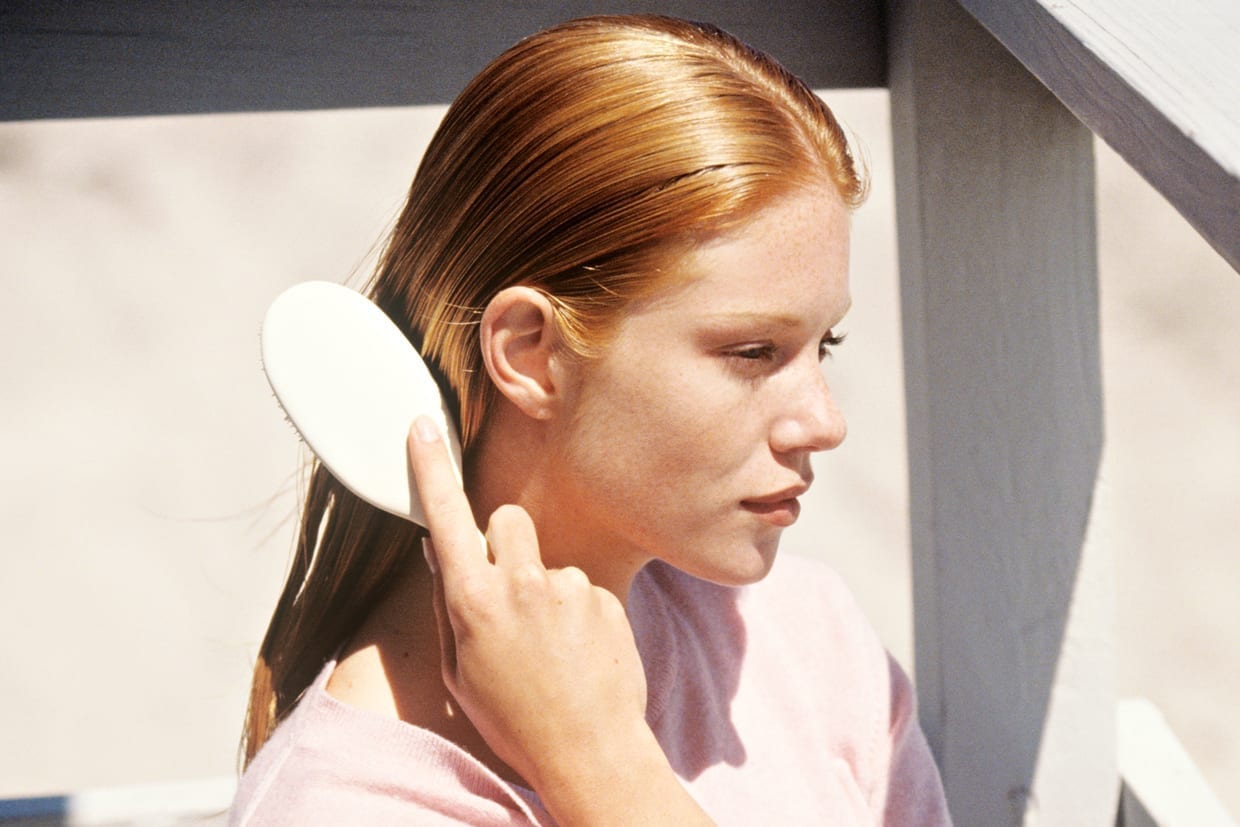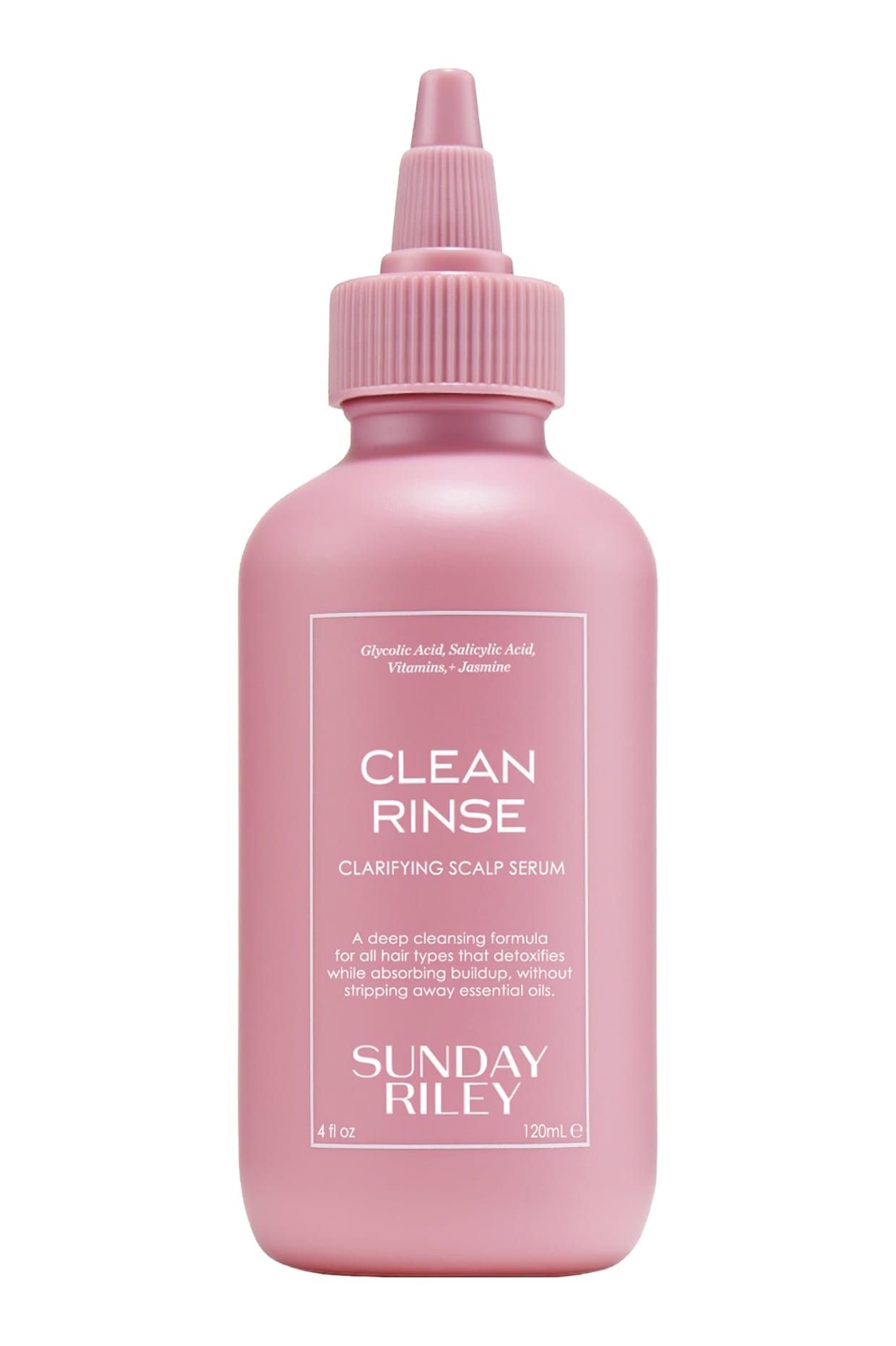We are used to dealing with acne on our face and body, but have you ever had pimples on your scalp? That is a whole other situation. Scalp acne often occurs along your hairline and the bumps are typically scarce and less noticeable than other types of acne. Here is everything you need to know about living and dealing with scalp acne.
What Is Scalp Acne?
Scalp acne includes any pimples around your hairline and any pimples that are actually found underneath your hair. These forms of head acne can be painful and lead to potential hair loss. “There is an overlap in the condition we call scalp folliculitis and scalp acne,” says New York City-based dermatologist Elyse Love, M.D. “Typically, I will term something ‘scalp acne’ if the patient has facial acne and also a few similar papules and/or pustules on the scalp.” These pimples can be small, itchy bumps that turn out to be very dry. On the other hand, they can also be red, pus-filled bumps or red bumps without pus. In more severe cases, scalp acne can be found in the form of a cyst or nodule underneath the skin.
People who are prone to regular facial and body acne may be predisposed to getting scalp acne.
“Scalp folliculitis is not uncommon, especially in young, athletic men in their teens to early 30s, men with coarser hair types, and men who shave their heads,” explains Love. However, it can also be a result of tight hairstyles, making the condition a possibility for anyone. Just like any other type of acne, scalp acne can leave permanent scars if picked at or if treated improperly.
What Causes Scalp Acne?
Common causes of scalp acne are product buildup from what you are using on your hair, improper cleansing, and letting bacteria linger on your scalp from headgear such as hats or hair accessories. Dry shampoo is also another big culprit here because it can block the pores on your scalp which can lead to possible breakouts and irritation.
It is important to note that people who are prone to regular facial and body acne may be predisposed to getting scalp acne. “Acne is a disorder of the hair follicle and can affect any hair-bearing surface, including the scalp,” says Love. Those who deal with dandruff should immediately get any bumps on their scalps examined as well.
But you shouldn’t self-diagnose, because in many cases it might not even be acne. A lot of people are actually looking at infections on the surface of the skin that trickle down to the hair follicles. “Many other disorders that affect the scalp, including serious hair loss disorders that some may confuse with scalp acne,” said Love. Anyone who is experiencing the signs of scalp acne is also possibly looking at larger skin diseases, irritation as the result of contact or of other medication, etc. She recommends an evaluation by a board-certified dermatologist to equip you with the knowledge and recommendations to manage the condition at home or in-office treatments and medications.
How to Treat Scalp Acne
Medicated shampoos are the way to go, but you will have to be patient with them. They can take anywhere from two to three weeks to show results, depending on the severity of your condition. You will want to look out for shampoos that contain salicylic acid, which is also known for its dandruff-treating properties so it is a two-in-one deal. These are safe to use every other day for the most effective cleansing. However, those with natural or curly hair types should stick to at least once a week to not strip the hair of its natural oils while treating it. Another powerful ingredient, ketoconazole, is clinically-proven to help kill dandruff. You can also use rinses and scalp scrubs to help the process of removing any unwanted buildup and flakes.
In some cases, a dermatologist may prescribe you a benzoyl peroxide or sulfur-based treatment for your scalp acne if it is more severe. Medicated benzoyl peroxide shampoos have been found to help eliminate the acne-inducing bacteria, however, there is a risk of bleaching your hair if used frequently. If you have naturally thick, curly, or coarse hair, use a medicated shampoo at least once a week followed by a hair mask to prevent your hair from drying out. There have also been cases where women are prescribed an oral contraceptive to treat their scalp acne if it is recurring, as the hormones have been linked to helping acne overall. Love explained that those with hormonally-driven symptoms, such as breakouts during menstruation, or hormonal acne on their face, are those who this would make the most sense for.
How to Prevent Scalp Acne
One doctor’s visit is not enough. “There are certain dermatologists who specialize in hair disorders,” said Love. You will want to check in with your dermatologist after you have begun your treatment to see if it is proven to be effective and what next steps you should take.
To prevent your scalp acne from returning, it is important to keep the pores along your hairline and on your scalp as unclogged as possible and prevent excessive buildup, with frequent cleansing. “Cleanse the scalp on a regular basis (this frequency will depend on your hair type), avoid overly tight hairstyles that pull on the scalp, and ensure that all instruments used to shave the head are disinfected,” says Love. You can also apply tea tree oil directly onto the scalp for immediate relief of any overwhelming dryness or itchiness. “If you develop a mild case, a simple anti-inflammatory shampoo can be used on an infrequent basis to prevent symptoms,” says Love.
Again, the most important thing is to stay in touch with a skincare expert for a proper check-up. “If you are experiencing a particularly severe case or a case that isn’t improving with recommended treatment, it might be worthwhile to seek out a hair-focused dermatologist,” adds Love. “Otherwise, your favorite board-certified dermatologist is likely able to diagnosis and treat your condition.”
What Should Be Avoided if You Have Scalp Acne?
Scalp acne like other forms of acne share similar best practices. Just like with any other painful pimples, picking, squeezing, popping, or touching, in general, is not the way to go. Keep your hands off any acne that you notice. This can lead to bacteria getting on the affected area and could spread it causing more acne, inflammation, or worse, an infection. It is also best to avoid extraction tools that can potentially damage the skin.
We only recommend products we have independently researched, tested, and loved. If you purchase a product found through our links, Sunday Edit may earn an affiliate commission.
Editor’s note: This article has been updated since its original publication in October 2019.








